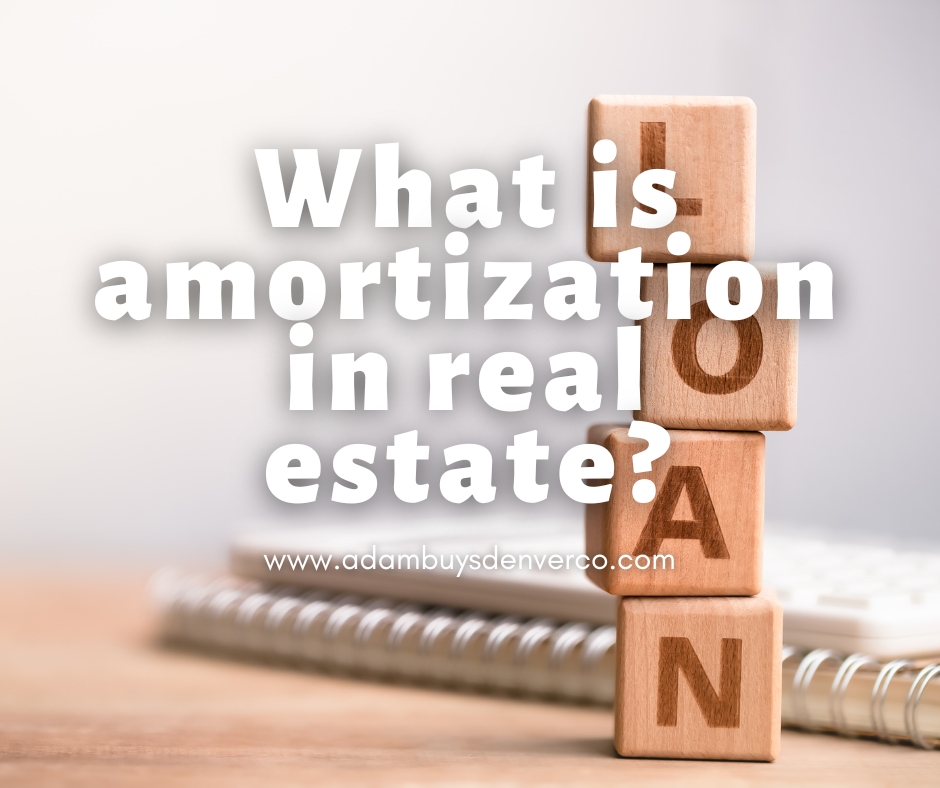
Speak to me directly!

Amortization in real estate refers to the process of paying off a mortgage loan over a period of time, usually in equal monthly payments. These payments consist of both principal and interest. The amount of principal and interest included in each payment will vary over the life of the loan. As the loan amortizes, the proportion of the payment applied to the principal will increase and the proportion applied to interest will decrease. Eventually, the loan will be fully amortized and the borrower will own the property outright.
Amortization can have a significant impact on homeowners, both in the short-term and the long-term. In the short-term, amortization affects the size of the monthly mortgage payment. The larger the loan amount and the longer the loan term, the higher the monthly payment will be. This can have a significant impact on a homeowner’s cash flow, especially if they have other debts or expenses.
In the long-term, amortization affects the total cost of the loan. Because interest is typically the largest component of the early payments, the longer the loan term, the more interest the homeowner will pay over the life of the loan. This can add thousands of dollars to the cost of the loan. However, if the homeowner makes extra payments towards the principle, they can shorten the loan term and pay less in interest over the life of the loan.
Furthermore, as the loan amortizes and the homeowner pays down the principal, their equity in the property will increase. This can be beneficial in that it can give the homeowner more options for refinancing or selling the property.
In summary, amortization can have a significant impact on a homeowner’s cash flow and the total cost of the loan. It is important for homeowners to understand the terms of their mortgage and how amortization will affect their payments and the overall cost of the loan.
Amortization can have important implications for real estate investors as well.
One of the key considerations for real estate investors is cash flow. Amortization can affect cash flow in a couple of ways. First, a longer loan term will result in lower monthly payments, but more interest paid over the life of the loan. This can make the property more cash flow positive in the short-term but increase the overall cost of the loan. Conversely, a shorter loan term will result in higher monthly payments but less interest paid over the life of the loan, making the property less cash flow positive in the short-term but reducing the overall cost of the loan.
Another consideration is the potential appreciation of the property. As a property amortizes, the investor’s equity in the property will increase. This can be beneficial if the property appreciates in value, as the investor can leverage their equity to purchase additional properties or refinance the existing property at a lower interest rate.
Additionally, amortization also affects the investor’s ability to refinance the property. In many cases, lenders require that a certain percentage of the loan be paid down before they will consider refinancing. Therefore, as the loan amortizes and the investor pays down the principal, they may become eligible for a refinance at a lower interest rate.
In summary, amortization can have a significant impact on a real estate investor’s cash flow, overall cost of the loan, and potential appreciation of the property. It is important for investors to understand the terms of the loan and how amortization will affect their investment.
Not all of them as a guarantee. However, most mortgage loans and all fixed-rate will amortize to zero reflecting that when the last monthly payment is made, there is no more money owed on the loan which then makes the property free and clear which is the ultimate goal for most homeowners of course.
This is called paying installment loans which are the monthly mortgage payments split over the course of the loan term.
Back to some mortgages that do not amortize to $0; if there’s a balloon mortgage, there is a fixed amount of the outstanding loan balance due as the last payment in order to clear the mortgage. This balloon payment may be as much as 10-20-30% of the original principal owed.
Some loans are even interest only, which may end up amortizing to $0 but does not amortize at all in the beginning of the cycle of repayments. As the name says, early payments go strictly to interest alone with no portion of the monthly payment going to the reduction of principal. Taking much longer to pay off, if ever.
Comments are closed.